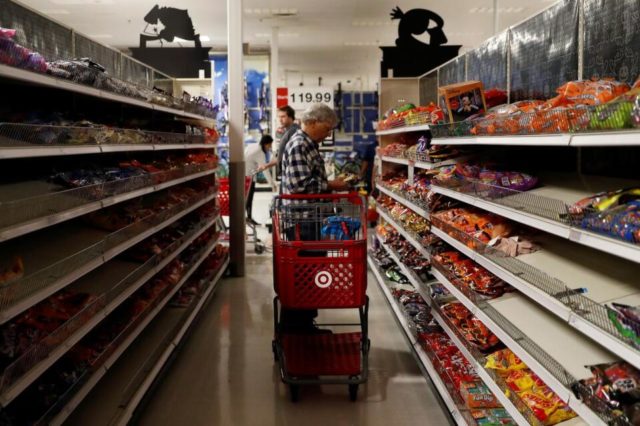StatsSA reported that the CPI edged higher to 4percent year-on-year in December from a low of 3.6percent in November.
JOHANNESBURG – Consumers might have to fork out a little more at the tills in the first three months of this year, as the fuel price is expected to continue pushing up headline Consumer Price Index (CPI) inflation.
Statistics South Africa (StatsSA) reported yesterday that the CPI edged higher to 4percent year-on-year in December from a low of 3.6percent in November.
This was mainly due to a higher fuel price inflation.
The hike was in line with market expectations.
In December, the price of 95 octane unleaded petrol rose by 22cents a litre, while that of diesel dropped by about 15c a litre. In January, petrol dropped 14c a litre.
But economists expect that inflation would be contained below the midpoint target band of 4.5percent, as the year progresses.
Investec economist Kamilla Kaplan said inflation would tick up until March, based on last year’s corresponding period.
“Fuel price inflation is set to continue to elevate headline CPI inflation in the first quarter of 2020, in view of the low statistical base established in the corresponding period of 2019,” she said.
“The other key influence on the CPI outcome in December was the increase in the contribution from food and non-alcoholic beverages.”
StatsSA said the average annual consumer price inflation was 4.1percent in 2019, the lowest reading since 2005 when the rate was 3.1percent.
On a monthly basis inflation increased by 0.3percent. The recent monthly inflation has been lower than the midpoint of the inflation target range.
The chief director for price statistics at StatsSA, Patrick Kelly, said inflation started 2019 on 4percent in January and hit highs of 4.5percent in March, May and June.
Kelly said food and non-alcoholic beverage inflation climbed slowly but steadily during the year, reaching 3.9percent in December, compared with November’s 3.5percent and January’s 3percent.
“Fuel prices increased by 2.4percent over the year, after starting 2019 with deflation of -1.2percent,” he said.
“Prices of certain public transport services showed very large 12-month increases in December. Car rental fees increased by 14.9percent and long-
distance buses by 20.6percent.”
Last week, the SA Reserve Bank (SARB) revised lower the medium-term inflation outlook to 4.1percent from 4.2percent for 2019, compared to the November forecast. The bank said inflation for 2020 would be 4.7percent, down from 5.1percent.
FNB economist Matlhodi Matsei said the December petrol price dynamics resulted in a 2.4percent year-on-year rise in the petrol CPI for December, after a fall of 6.6percent in November.
“The uptick in the petrol CPI contributed to a higher overall transport CPI, which added 0.5percentage points to headline CPI from zero contribution in November,” she said.
“Over the near term, we expect headline CPI to continue drifting below the midpoint of the SARB’s inflation target band of 4.5percent, amid the inability to pass on material price increases to the consumer due to constrained consumer-income growth.”
Matsei said the inflation trajectory was expected to moderate during the course of the year.
“Although we might see some base effects from higher international oil prices during the first few months of 2020, we expect these to dissipate shortly thereafter which means that the overall inflation trajectory will remain contained,” she said.
BUSINESS REPORT








